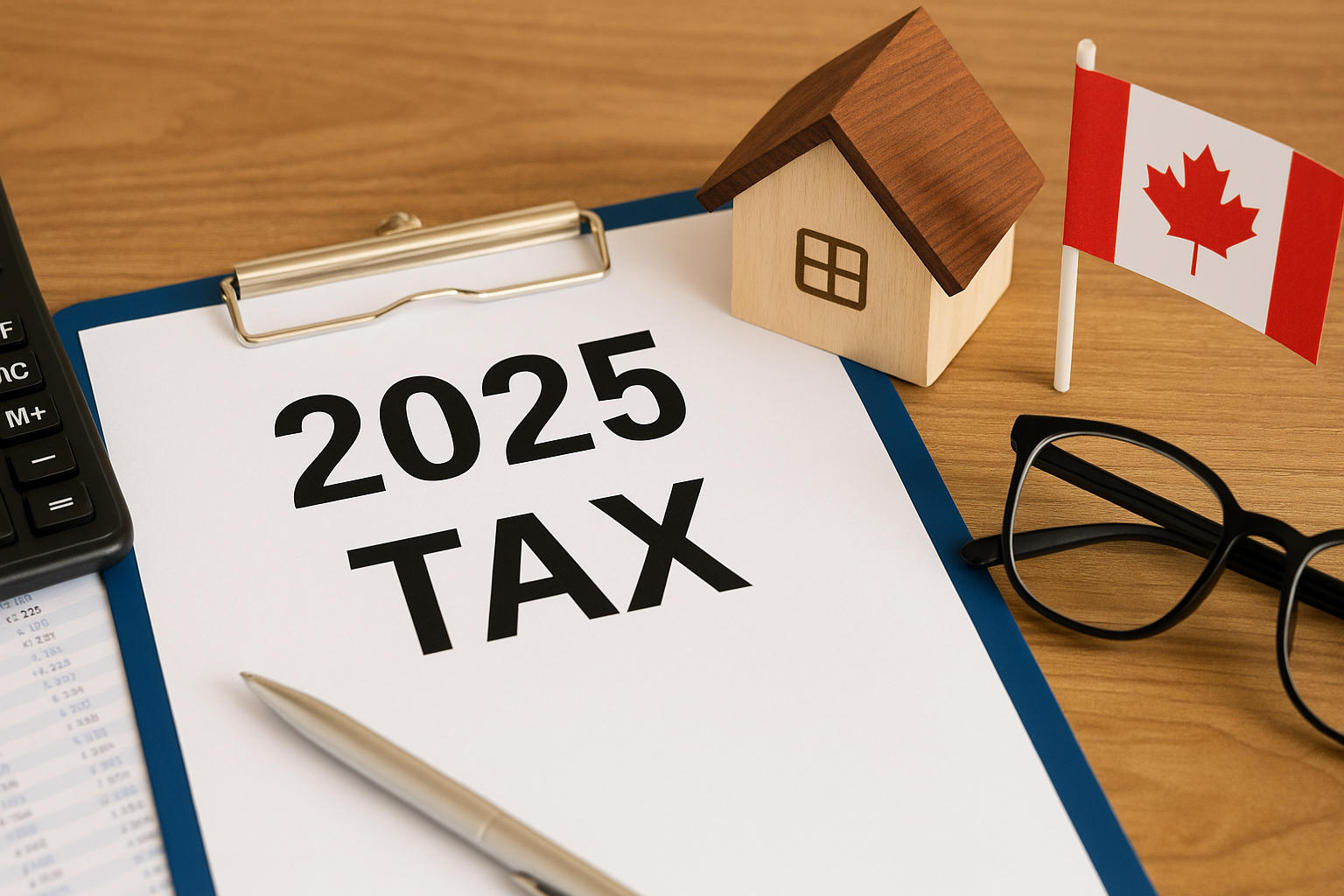
Tiny Home Short-Term Rental Taxes 2025: A Detailed Guide for Canadian Owners
Estimated reading time: 10 minutes
Key Takeaways
- Tiny home rentals are rapidly growing in popularity and offer unique benefits, from affordability to sustainability.
- 2025 tax rules impose strict compliance requirements with potential loss of expense deductions for non-compliant operators.
- Provincial variations mean that rules differ between Ontario, British Columbia, Quebec, and other areas.
- Accurate reporting and proper record-keeping are essential to avoid penalties from the CRA.
- Consulting tax professionals and staying informed through reliable resources like the CRA Tax Tips on Eligible Deductions is highly recommended.
Table of contents
Introduction: Tiny Home Short-Term Rental Taxes 2025 in Canada
Tiny home short-term rental taxes 2025 are a big topic for property owners and investors in Canada. As tiny homes surge in popularity on platforms like Airbnb across the country, understanding the new tax rules has never been more crucial. Operating a tiny home rental not only provides extra income but also brings new compliance challenges at federal, provincial, and local levels.
Starting in 2025, tax regulations will require operators to closely follow guidelines to avoid denied deductions and financial penalties from the CRA. Learn more about proper tiny home living in our guide on
Tiny Home Living: Your Complete Guide to Micro Homes, Sustainability, and Lifestyle Freedom.
Overview of the Short-Term Rental Market in Canada
Defining Short-Term Rentals for 2025
In Canada, a short-term rental involves leasing a residential property or a portion of it for less than 90 consecutive days. This includes:
- Apartments and condos
- Detached homes
- Trailers and houseboats
- Tiny homes, whether stationary or on wheels
Tiny homes are becoming a favorite due to their affordability and lower environmental impact, attracting both investors and eco-conscious travelers. For insights on mobile tiny home options, check out
Portable Homes: Exploring Mobile Living, Affordability, and Sustainable Housing Solutions.
Provincial Variations in Tiny Home Short-Term Rental Rules
While short-term rentals are regulated across Canada, each province—and many cities—impose their own licensing and tax rules. Major markets like Toronto, Vancouver, and Montreal have stricter bylaws which can affect your eligibility for tax deductions. For detailed guidance, refer to
True North: 2025 Short-Term Rental Regulations.
Canadian Tax Rules for Short-Term Rentals in 2025
Tax Rules for Short-Term Rentals and Tiny Homes in Canada
The Canada Revenue Agency (CRA) classifies income from short-term rentals, including tiny homes, as taxable income. Operators are required to:
- Report every dollar earned, regardless of the amount
- Comply with federal as well as provincial/local regulations
- Obtain the necessary licences or permits
- Register for GST/HST if annual taxable revenue exceeds $30,000
GST/HST and Other Taxes
Once your income exceeds the threshold:
- Register for a GST/HST number
- Collect GST/HST from guests based on provincial rates
- Remit the collected amounts to the government as required
Additional provincial taxes and levies may apply, such as BC’s Municipal and Regional District Tax (MRDT) or Quebec Lodging Tax. For complete reporting guidance, visit
CRA Rental Income Reporting and Deductions.
Detailed Tax Implications for Tiny Home Owners Operating Short-Term Rentals
Tax Rules and Reporting for Tiny Home Short-Term Rentals
All income earned from renting out a tiny home on a short-term basis must be declared on your annual tax return. Whether you own the property personally or through a business, accurate reporting is crucial.
How to Report Income from Tiny Homes
- Document every payment received from guests
- Include rental income in the appropriate section of your tax return
- Utilize T776 (Statement of Real Estate Rentals) if applicable
For more information on proper rental documentation, see
CRA Guide to Rental Income.
Deductible Expenses for Compliant Operators
If your tiny home rental is fully compliant, you may deduct expenses such as:
- Repairs and maintenance
- Property taxes
- Mortgage interest (if applicable)
- Utilities, including electricity, water, and internet
- Insurance premiums
- Advertising, booking platform, and management fees
Capital Cost Allowance (CCA): Depreciation Rules
Depreciation via the Capital Cost Allowance (CCA) can be claimed based on the portion of your tiny home used for rental purposes. For example, if your property is rented 50% of the year, only half of the eligible expenses and CCA may be deducted.
Non-Compliance: The Consequences
As of January 1, 2024, any non-compliance—such as operating without proper registration or failing to collect taxes—results in the loss of all eligible expense deductions. For additional details, visit
Loss of Deductions for Non-Compliant Rentals.
Compliance Requirements by Province for Tiny Home Short-Term Rentals
Provincial Tax Rules and Licensing
Ontario
- Register your short-term rental with the province
- Municipal licences are mandatory (e.g., Toronto and Ottawa)
- Toronto requires that only primary residences can be registered, along with a Municipal Accommodation Tax (MAT)
- Ottawa mandates registration and adherence to rules on minimum night stays and insurance
British Columbia
- Provincial licensing and registration are required
- Municipalities such as Vancouver and Victoria may have additional bylaws
- Collection of BC’s PST and the MRDT may be necessary
Quebec
- Registration with the CITQ (Corporation de l’industrie touristique du Québec) is required
- Municipal registration is often mandatory
- A Quebec Lodging Tax applies
For a comprehensive guide to compliance, refer to
True North: Province-by-Province Compliance Guide.
Tax Deductions and Benefits Available to Tiny Home Short-Term Rental Operators
Maximizing Legal Deductions
When fully compliant, tiny home rental operators can deduct expenses including:
- Repairs and routine maintenance
- Utilities such as power, water, and internet
- Insurance premiums
- Property taxes (proportional to rental use)
- Mortgage interest (for the rental portion)
- Advertising and booking commission fees
- Management fees if hiring a professional
- CCA for depreciation of the rental portion
Proper Documentation is Crucial
Maintain detailed records including receipts, invoices, and rental logs. Accurate expense allocation between personal use and rental use is vital for claiming proper deductions. For further advice, consult
CRA Rental Income Guide.
Some municipalities even offer incentives or grants for sustainable short-term accommodations. Check local guidelines to see if you qualify.
Common Challenges and Pitfalls in Managing Tiny Home Short-Term Rental Taxes
Frequent Pitfalls for Short-Term Rental Operators in 2025
- Ignoring Provincial or Municipal Registration: Failing to secure the necessary permits can lead to denied deductions and fines.
- Incorrectly Reporting Income: Not declaring all rental income or mishandling the business-use portion may trigger audits.
- Improper Expense Allocation: Deducting full expenses when only a portion relates to the rental use can result in adjustments and penalties.
- Missing GST/HST Registration: Failure to register after surpassing the $30,000 revenue threshold can incur back taxes and interest.
- Poor Record-Keeping: Inadequate documentation will hinder your ability to justify deductions during CRA reviews.
To avoid these issues, ensure you are fully compliant by registering in every required jurisdiction, meticulously tracking income and expenses, and consulting with specialized tax professionals. For insights on avoiding pitfalls, see
True North: Pitfalls for 2025.
Preparing for 2025: Planning Ahead for Regulatory and Tax Changes
How Tiny Home Owners Can Get Ready
- Stay Informed: Monitor changes in federal, provincial, and local tax regulations by subscribing to updates and reviewing CRA releases.
- Proactive Compliance: Regularly verify your registration and licensing status to ensure timely renewals and updates.
- Regular Financial Reviews: Conduct mid-year and year-end audits of your financial records to keep income and expenses in check.
- Consult With Experts: Engage with accountants or tax professionals specializing in short-term rental taxation to identify deduction opportunities.
- Adapt to New Laws: Keep abreast of any local or legislative changes that may affect your tiny home rental’s tax situation.
For further guidance on staying compliant, see
True North: Staying Compliant in 2025.
Conclusion
Understanding and complying with the 2025 tax rules for tiny home short-term rentals is essential for maintaining profitability and avoiding penalties. Ensure that you are registered, accurately reporting income, and keeping proper documentation to claim all your eligible deductions.
Remember to regularly review changes to federal, provincial, and local regulations and consult with tax experts as needed. Staying proactive will help your tiny home rental thrive in a competitive and regulated market.
For more information, refer to resources like the
CRA: Eligible Deductions for Short-Term Rentals and
True North: 2025 Regulatory Overview.
Frequently Asked Questions
Q1: Who is impacted by the 2025 tax rules for tiny home rentals?
A: All tiny home owners using their property as a short-term rental in Canada must comply with the new regulations, regardless of the rental duration or property type.
Q2: What happens if I do not comply with the new tax regulations?
A: Non-compliance can lead to denied expense deductions, fines, and possible penalties from the CRA. It is essential to follow all federal, provincial, and municipal guidelines.
Q3: How do I know if I need to register for GST/HST?
A: If your total taxable rental income from all properties exceeds $30,000 in a year, you must register for GST/HST and begin collecting tax from your guests.
Q4: Can I deduct expenses if I use the tiny home for personal purposes part of the year?
A: Yes, but only the proportion of expenses related to the rental period is deductible. Accurate record-keeping is crucial to determine the correct amount.
Q5: Where can I find more detailed information on these tax rules?
A: Detailed guidelines are available on the CRA website, as well as through trusted resources like
Investment Executive: Tax Compliance for Short-Term Rental Income.

Leave a Reply